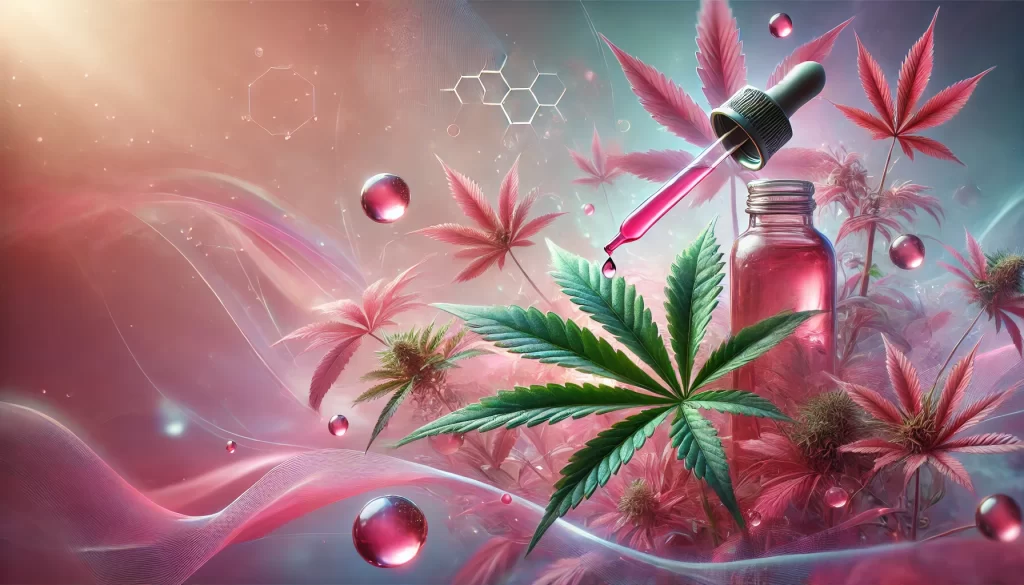As cannabis cultivation grows globally, so does the need for organic fungicides to protect marijuana flowers from devastating fungal infections like powdery mildew and botrytis. But could marijuana extracts themselves be the next breakthrough in sustainable crop protection?
With increasing awareness of the effects of marijuana on human health, many growers are shifting away from synthetic chemicals. But what if cannabis-derived compounds could offer a dual benefit—enhancing plant resilience while minimizing marijuana risks like pesticide residue?
In this guide, we explore the science behind marijuana extracts as organic fungicides, their potential benefits over traditional methods, and how they compare to smoking marijuana or other consumption forms. Could this be the future of sustainable cannabis farming?
Why are Organic Fungicides Essential for Cannabis Cultivation?
Fungal infections can destroy entire crops, leading to significant financial losses. Traditional chemical fungicides pose marijuana consequences like environmental harm and health risks, pushing growers toward natural alternatives.
Common Cannabis Fungal Threats
- Powdery Mildew – White, powdery spots on leaves.
- Botrytis (Bud Rot) – Gray mold that ruins marijuana flowers.
- Fusarium & Pythium – Root rot pathogens.
Did You Know? Some marijuana extracts, like CBD and terpenes, exhibit antifungal properties, offering a potential organic solution 2.
Marijuana Extracts vs. Traditional Fungicides: Which Is Better?
Chemical Fungicides: The Hidden Risks
Many synthetic fungicides leave residues that may amplify marijuana effects in the body when consumed. Some regions where marijuana is illegal still face contamination issues due to unregulated pesticide use.
The Case for Marijuana-Based Organic Fungicides
Research suggests that cannabinoids and terpenes can disrupt fungal cell membranes, offering a natural defense 2. Benefits include:
- No toxic residues – Safe for consumers.
- Enhanced plant immunity – Some extracts trigger systemic resistance.
- Eco-friendly – Biodegradable and sustainable.
Key Takeaway: While smoking marijuana remains popular, its extracts could revolutionize how we protect cannabis crops organically.
Understanding Marijuana Extracts: Beyond Consumption
What Are Marijuana Extracts?
These are concentrated compounds derived from cannabis, including:
- CBD & THC oils
- Terpenes (natural antifungal agents)
- Rosin & Hash Oil
Is Extract Better Than Flower?
For cultivation, marijuana extracts may offer targeted antifungal benefits without altering plant growth. For consumption, extracts provide potency but also carry higher marijuana addiction risks if misused.
Potential Side Effects & Legal Considerations
Marijuana Extract Side Effects
While beneficial for plants, human consumption of high-THC extracts can lead to:
- Increased heart rate
- Cognitive impairment
- Dependency risks
In What States Is Marijuana Illegal?
As of 2025, cannabis remains prohibited in:
- Idaho
- Nebraska
- Kansas
- South Carolina
Always check local laws before using marijuana extracts for cultivation or consumption.
FAQs: Marijuana Extracts & Organic Fungicides
What are marijuana extracts?
They are concentrated forms of cannabis compounds, including cannabinoids and terpenes, used for both medicinal and agricultural purposes.
What is the strongest marijuana extract?
THC distillate is among the most potent, but for fungicidal use, CBD-rich extracts may be more effective without psychoactive effects.
What is the difference between extracts and concentrates?
Extracts are chemically separated compounds (like oils), while concentrates are mechanically processed (like kief or hash).
Is extract better than flower?
For fungal prevention, extracts offer precision. For consumption, flower provides a more balanced experience.
What are the side effects of marijuana extract?
High-THC extracts may cause dizziness, anxiety, or dependency, whereas CBD extracts have minimal side effects.
What is the difference between edibles and extracts?
Edibles are food-infused with cannabis, while extracts are pure cannabinoids used in oils, dabs, or sprays.
How do extracts work?
They interact with the endocannabinoid system in humans or disrupt fungal cell structures in plants.
Conclusion: A Greener Future for Cannabis Cultivation
The potential of marijuana extracts as organic fungicides is immense. By leveraging cannabis’s natural compounds, growers can reduce reliance on harmful chemicals while improving crop resilience.
What’s Next?
- Experiment with terpene sprays for mildew prevention.
- Stay updated on legal changes in states where marijuana is illegal.
- Share your experiences with organic fungicides in the comments!
By embracing sustainable solutions, we can protect both our plants and our planet. 🌱

